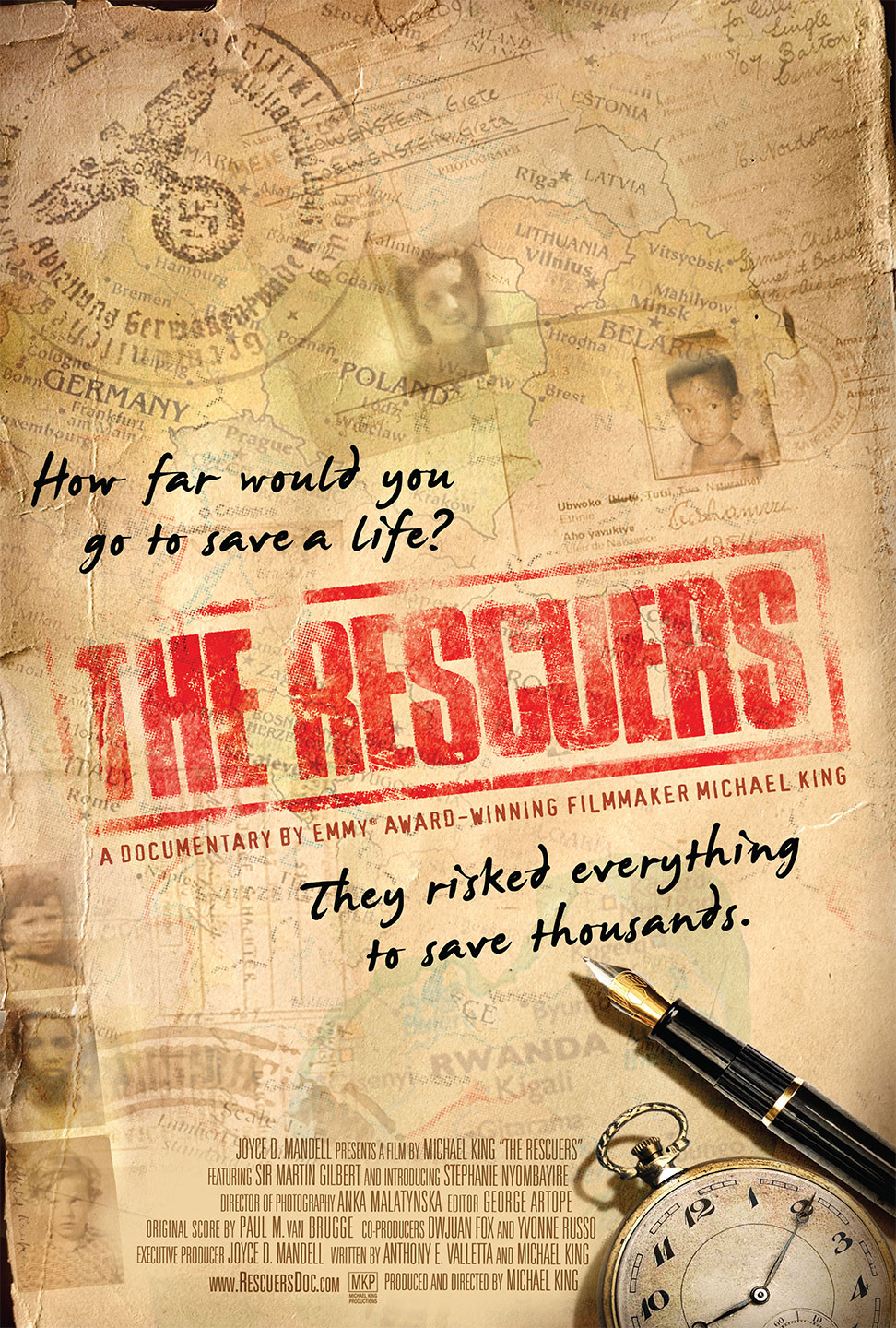Michael W. King
Filmmaker-Producer, Director and Writer
THE RESCUERS explores the mystery of goodness, but since those who displayed such amazing acts of kindness can’t tell us in their own words why, we can only speculate. Sir Martin says, “There are good people and there are bad people. The good people may act from religious belief, from the guidance and example of their parents, or from a deep personal understanding that there is such a thing as decency, and that there is such a thing as free will: to act according to one’s conscience even if the consequences may be hard. Education can instill a sense of ethics, and so can upbringing and religion: these are the three basic strengths of civilization. The rescuers showed just how effective those strengths can be.”
Michael W. King adds, “How could others stand by and watch, as so many of them did? That’s what makes it a mystery. It’s the concept that I wouldn’t let this happen to my family, so why would I watch this happen to another family and not try to prevent it. These stories are worthy just based on the humanitarian aspect of each of these individuals. These are the types of values and people we should want to introduce to our children and into our school system. For so long they weren’t honored. They went back to their countries and most ended up demoted and rejected for their actions, because they went against their country’s policy. Can you imagine, being penalized for saving thousands of lives?”
“My hope is that through this story we can inspire others to ask themselves why goodness is a mystery and not the norm. This experience has given me the determination to continue to find ways through which we can ensure that genocide or attempts to commit genocide become history,” Nyombayire adds. “It gives me hope that if individuals could put their life, career and family at risk to save others, maybe this could become the norm rather than the exception.”
The Rescuers
How far would you go to save a life?
They risked everything to save thousands.
THE RESCUERS came to life after director Michael King received a call from his friend and producer Joyce D. Mandell, about the diplomats. A businesswoman and philanthropist, Mandell first became aware of the story when she got involved in bringing a photography exhibit about the diplomats to the University of Hartford. She saw the exhibit again when it was shown at the Legislative Building in Washington, D.C. and on Ellis Island. She comments, “I felt this compelling story needed to be told to a much broader audience so I spoke with Michael because a documentary would make for a gripping account of this virtually unknown story.”
“Joyce invited me to Connecticut to meet with what I call ‘the committee’ that would serve as quasi-advisors on the film. It was comprised of a professor of Judaic Studies, a Rabbi, a Jewish Community Center executive director, a museum film curator, an author of books of Jewish History, various historians, and others knowledgeable about this time period. I had to pitch my idea and explain why I, an African American, was interested in the Holocaust,” states King. “My answer was simple. All of my films deal with social issues. As an African American male I have an understanding of crimes against humanity. If Steven Spielberg could make the film THE COLOR PURPLE, why can’t I make a film about the Holocaust? The idea with this film is to look at the Holocaust from a different perspective – from a present-day point of view through the eyes of a young girl from Rwanda. We wanted to tie the past to the present, which would make it a more universal story.”
